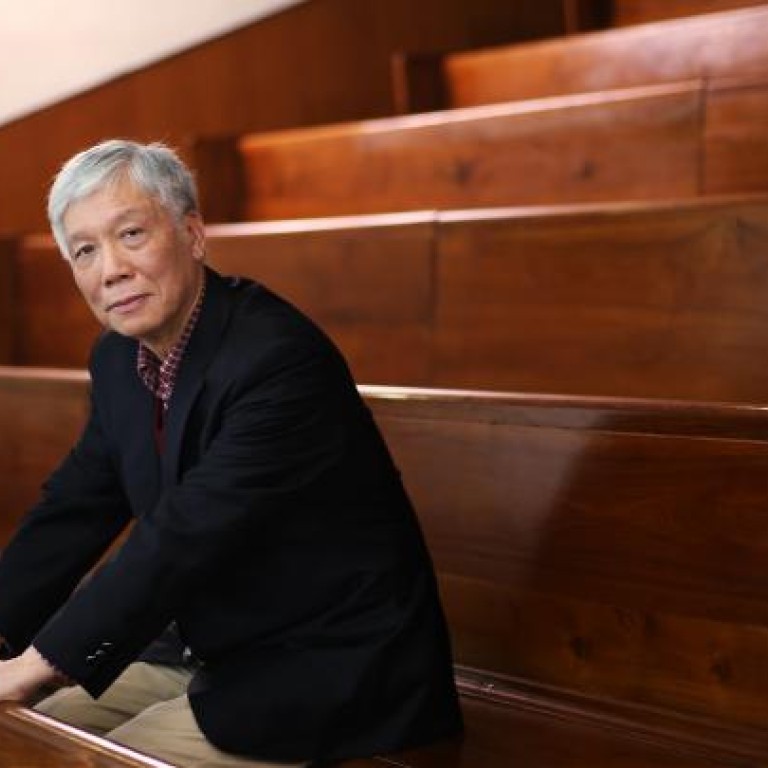
Hong Kong must stick with the Basic Law
Regina Ip says the Occupy Central movement is falsely promising a vision for Hong Kong that in fact contravenes both the letter and spirit of the constitution that has served us so well
Almost 30 years after the signing of the Sino-British Joint Declaration on the future of Hong Kong, and more than 15 years after the implementation of the Basic Law, Hong Kong's development appears to have reached a crossroads. As 2017, the promised date for electing Hong Kong's chief executive by universal suffrage, draws near, calls to "occupy Central" as a means of putting pressure on Beijing to embrace a democratic selection method threaten to derail the implementation of the Basic Law.
On the face of it, who can decry the siren calls of seemingly righteous intellectuals dedicated to fighting for Hong Kong people's right to choose their chief? On deeper analysis, however, the Occupy Central movement is fraught with danger.
First and foremost, the movement amounts to a rejection of the Basic Law and the political reality underlying Hong Kong's status as a special administrative region of China. For more than 100 years under British rule, Hong Kong was governed using the classic colonial model, with executive and legislative powers concentrated in the hands of the governor and appointed officials. Hong Kong people never had any say in the choice of their leader.
The advent of 1997 forced the British to introduce democratic reform, albeit belatedly in the 1980s, as a check on Beijing's power. In the course of the Sino-British negotiations on the future of Hong Kong, Beijing agreed that the chief executive shall be "selected by election or through consultations held locally and be appointed by the Central People's Government".
Later on, after listening to the representations of Hong Kong people, Beijing further agreed to cast in stone, in the fine print of article 45 of the Basic Law, its commitment that the "ultimate aim is the selection of the chief executive by universal suffrage upon nomination by a broadly representative nominating committee in accordance with democratic procedures".
Granted, in the eyes of the British negotiators, the provisions for selecting the chief executive fell short of the British wish to turn Hong Kong's political structure into a parliamentary government, as in other former colonies. Yet, given Hong Kong's constitutional and historical status as an inalienable part of China, the arrangements in the Basic Law, if successfully implemented in an orderly manner, would give Hong Kong people the greatest say in choosing their chief and the most democratic system they have ever enjoyed.
Turning now to the Occupy Central movement, under the mantra of "Let Love and Peace Occupy Central", the organisers plan to formulate proposals for electing the chief executive in accordance with international standards and on the basis of popular deliberations, without regard to the letter and spirit of the Basic Law. In so doing, they are effectively jettisoning the political arrangements that have been enshrined in the de facto constitution.
The Basic Law has in the past 15 years ensured the continuation of the Hong Kong way of life under "one country": Hong Kong people have become more critical of their government and more ready to exercise their rights and freedoms than ever; Hong Kong's media, including many independent online forums, more irreverent and influential; and Hong Kong's political system, despite the government's best efforts to remain "executive-led" as in the colonial era, more decentralised than ever. The introduction of universal suffrage is no doubt the last missing piece of the jigsaw fulfilling the democratic method.
In essence, thanks to the implementation of the Basic Law, Hong Kong has in the past 15 years evolved into a highly democratic society with strong rule of law, a feisty civil society and a highly competitive political culture, all being hallmark ingredients of democratic rule. Throw away the Basic Law and Hong Kong could end up losing the constitutional basis for its continuous, robust development under "one country".
The reference to international standards is gratuitous in that the international covenant guaranteeing Hong Kong people's civil and political rights is already anchored in article 39 of the Basic Law. The call for a "deliberation day" to discuss and formulate electoral proposals, purportedly originating from the "deliberative polling" model pioneered by Stanford University professor James Fishkin, is misleading in that there will be no random selection of participants in the Hong Kong exercise, nor will "balanced reference materials" - prominently the Basic Law and related documents - be made available. The selection bias of the organisers would skew the discussions.
As always, "Power to the People" has a seductive appeal to those who allow their emotions to take control, and such numbers could be legion. Yet reality and history tell us that anarchy could be let loose if the centre cannot hold.
It is for good reason that, as early as in the 17th century, Thomas Hobbes saw the Leviathan state as the solution to anarchy, allowing people to secure private property and build a community. States and societies are built on constitutions, and our constitution provides the basis for a bright future for Hong Kong to materialise. Let us treasure that and not throw it away.

